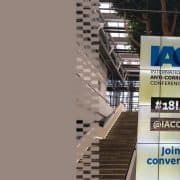|
Getting your Trinity Audio player ready...
|
By Richard Goldstone and Robert Rotberg
First published on the Global Anticorruption Blog
In a 2018 Daedalus article, senior US district judge Mark L. Wolf explained that The World Needs an International Anticorruption Court (IACC) and charted a course for its creation. In a recent post on this blog, Professor Alex Whiting characterised the IACC as a “utopian” dream and possibly “a distraction from more effective responses to the worldwide scourge of grand corruption.”
Notably absent from the post is a description of what the other effective responses to combating grand corruption might be.
In contrast to Prof Whiting, we found Judge Wolf’s original proposal for an IACC compelling. Therefore, we joined him in establishing Integrity Initiatives International (III).
The mission of III (pronounced “triple I”) is to strengthen the enforcement of criminal laws in order to punish and deter corrupt leaders who regularly violate human rights. III actively supports national measures, and also promotes closer collaboration between human rights and anti-corruption organisations.
In addition, III is forging a network of young people, in Latin America particularly, dedicated to combating corruption in their own countries and throughout the world.
All of these efforts also serve III’s goal of catalysing a coalition and, ultimately, a formal campaign to create the IACC. This court would serve as a forum to prosecute corrupt leaders who violate the criminal laws of their own countries with impunity because they control the police, the prosecutors, and the courts.
National govts fail to address grand corruption
Prof Whiting acknowledges that Judge Wolf “persuasively argues [that] national governments have failed to adequately address grand corruption in their own jurisdictions, with significant adverse consequences for international security and prosperity … and convincingly draws the connection between corruption and threats to security.”
To date 183 countries have signed the UN Convention Against Corruption (UNCAC), and have an international obligation, under the Vienna Convention on the Law of Treaties and UNCAC itself, to enforce the criminal laws that UNCAC requires against their nation’s leaders.
An IACC, acting on the principle of complementarity, would provide the essential forum for prosecuting corrupt leaders of countries that are unwilling or unable to discharge this duty themselves.
Advocacy for the IACC has enhanced international understanding of the importance of strengthening enforcement of the laws required by UNCAC and, in the process, led to productive partnerships to combat corruption. For example, when III was working with the White House and Secretary of State in preparation for the 2016 London Anti-corruption Summit, the British National Crime Agency enlisted its assistance in the successful effort to create an International Anticorruption Coordination Centre. In the centre, the UK, the US, and several trusted allies co-operatively trace the international flow of the proceeds of corruption.
An IACC would be a forum for the prosecution of cases of grand corruption that the centre develops which cannot be effectively pursued in countries with corrupt prosecuting authorities. The centre would be an invaluable investigative asset for the IACC.
More recently, III worked closely with the IMF, the World Bank, and, particularly, young Ukrainian leaders of the Euromaidan revolution to achieve legislation creating a national Special Anticorruption Court. III has since proposed three of the 12 candidates recommended by the international community to serve on the crucial panel of foreign experts which will have the authority to veto the appointment judges who are not honest or able. III’s colleagues recognise that the special national court may be undermined by their adversaries and an IACC may, therefore, be essential to the success of their efforts to combat grand corruption in Ukraine. Accordingly, they are strong supporters of the IACC.
Learning from ICC’s mistakes
The common criticisms of the International Criminal Court (ICC) on which the IACC would be modelled, which Prof Whiting echoes, are thoroughly addressed by Judge Wolf in his Daedalus article.
Among other things, Prof Whiting notes that while 33 African countries joined the ICC, the most from any region, Burundi has withdrawn and South Africa, under then-president Jacob Zuma, threatened to do so.
More significantly, however, in his recent keynote speech at the 20th anniversary celebration of the ICC, Nigerian President Muhammadu Buhari, the AU’s anti-corruption champion, said that a “strong and effective ICC” has the potential to “act as a catalyst for … expanding the reach of accountability … [including to] serious cases of corruption by state actors that severely compromise the development efforts of countries and throw citizens into greater poverty.”
III believes that cases of grand corruption are not within the jurisdiction of the ICC and, in part to assure they are given proper priority, a separate IACC should be established. It is now beginning to work with President Buhari’s advisors to advance his vision of an international forum for the prosecution of grand corruption.
As Prof Whiting notes, the ICC evolved from the first international tribunal at Nuremburg, which was – with difficulty and controversy – created by the US, Britain, France, and Russia to try Nazi leaders for atrocities. It took 50 years for the ICC to be born in what Prof Whiting calls “a diplomatic golden moment,” that he does not expect to recur for creation of an IACC. It should be recognised that decades of dedicated efforts, when the outcome was uncertain, were necessary to create the conditions that could be capitalised upon in that “golden moment.”
However, such initiatives do not always take decades to succeed. As Judge Wolf explained in his Daedalus piece, the International Campaign to Ban Landmines began in 1992, outside the UN framework, and resulted in a treaty signed by 122 nations only five years later.
Challenges are there to be overcome
Prof Whiting suggests that the supporters of the IACC suffer from “naïve utopianism.” Of course, we recognise that there are formidable challenges. However, comparable claims were made about the campaign to end apartheid in South Africa. Therefore, experience causes us to believe that Nelson Mandela was right when he said that “[i]t always seems impossible until it is done.”
Moreover, as the effort to create the IACC is already generating partnerships and other initiatives that are making valuable contributions to combating corruption, the effort is meaningful despite the inevitable uncertainty of the outcome.
Prof Whiting thoughtfully raises questions, including questions of law, that cannot be addressed properly in a blog post and, indeed, would benefit from the work of legal scholars and others. However, he reminds us of US Secretary of War Henry L. Stimson, an architect of the Nuremberg trials, who in his memoir On Active Service in Peace and War wrote that future generations should “not turn aside from what they have to do, nor think that criticism excuses inaction.”
In this spirit, we invite Prof Whiting, and all others, to join us in refining the concept of the IACC and working to make it a reality.
• Richard Goldstone is a former Constitutional Court justice, who also served as the first chief prosecutor of the UN International Criminal Tribunals for the former Yugoslavia and Rwanda. Robert Rotberg is the president emeritus of the World Peace Foundation and former professor at the Harvard Kennedy School of Government.
• Image from International Anti-Corruption Court IACC Campaign








